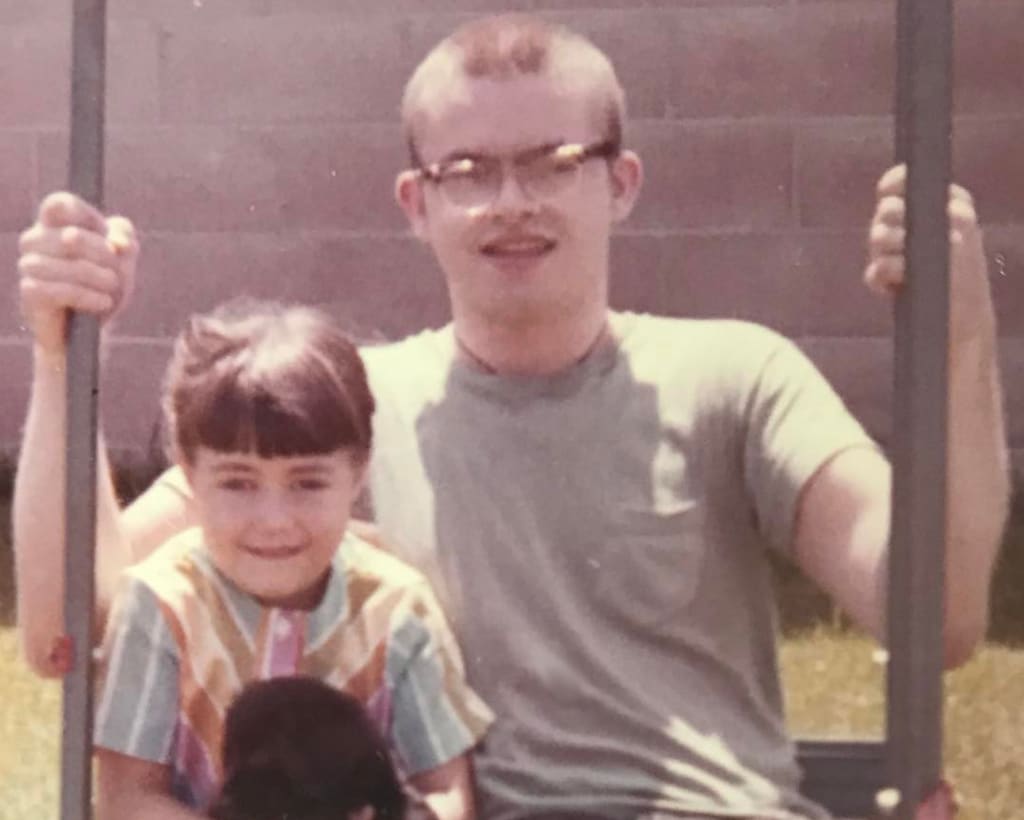Please Stop Saying "Retarded" or Calling People a "Retard"
These are hurtful words that cut deep

The words “retard” and “retarded” are almost never used in context. Instead, these terms are used to get a laugh, make an insult, or insinuate that someone or something is stupid. Unless you have a relative with a profound disability, you may never understand the pain that is connected to those terms.
A Medium writer I follow wrote an article about being censored for calling someone “a piece of s**t” and telling them to “f**k off” in a private comment after the individual created a Medium account for the sole purpose of trolling her because of an article she published criticizing the horrendous mistreatment of racing dogs. Again, her comment was private—and totally justified in my opinion. In the comment section of her article, someone lamented being “reprimanded twice now for using the word ‘retard.” I have not read his articles, so I am not not sure of the context in which he twice used the term, but I responded with the following:
“…using the “R” (word) is offensive and hurtful to family members of the intellectually disabled, whether the person was born that way, received a devastating head injury, was the victim of an illness that resulted in cognitive deterioration, or has no mental/intellectual disability, but is being judged (or misjudged) based on physical appearance like Cerebral Palsy.
My brother was not mentally retarded: he was in a wheelchair because of Muscular Dystrophy. Still, kids and some ignorant adults took pleasure in telling me that my brother was “retarded.” It is a trigger for me. My brother—who died when I was nine—was an intelligent young man who was judged for a physical disability.
It blows my mind that people who would never make a racist or LGBTQ+ comment, casually throw this word around. I would not have “reported” it, I just lose respect for people who use the term.
He responded back. “People who use that word for anyone in a wheelchair are themselves r…’d.” He mentions that people who casually use the “n-word” will no longer be invited to his parties. He adds, “But the word does exist and attempts at somehow ‘undoing’ the fact are just ridiculous… The thought that work needs to be done to save people from seeing/hearing those words explicitly just hurts the brain.”
Seriously, your brain is “hurt” by people like me who try to explain how damaging that term is to people who have had it directed at them or their family members. To be clear, I’m not sorry I hurt his brain.
Will Smith’s reaction to Chris Rock at the 94th Academy Awards on March 27, 2022, illustrates the impact that mocking people over a physical ailment has on relatives. Rock’s joke about Smith’s wife Jada Pinkett Smith looking like GI Jane with her shaved head due to the condition of alopecia, which causes hair to fall out, was out of line. The look of hurt on Jada’s face was painful to witness, and her husband’s reaction to the joke by slapping Rock in the face and admonishing him to “keep my wife’s name out of your f**king mouth” shocked America and started a debate on how best to protect Black women. Ultimately, making fun of someone over a physical condition that impacts their life on a daily basis is always in bad taste.
The unspoken guideline that most comedians follow involves only making fun of your own conditions, but not the conditions of others. Basically, Jews can make jokes about being Jewish, Blacks can make jokes about being Black, and women can make jokes about being female. If you cross the line and make a joke about someone else’s ethnicity, religion, sexual orientation, etc., be ready to suffer the consequences, which may be a career buster. Dave Chappell’s jokes about the trans community is a case in point. His core supporters remain firm, but he lost the respect of many other fans.
When a student used the term “retarded” in my classroom, I would shut it down immediately by stating that the word was hurtful to anyone with an intellectually disabled family member and advise my students to never use that term in my classroom.
Every year, before winter break, I would tell my students to have a safe holiday and caution them to never get in a car with someone who was impaired by drugs or alcohol. I told them the story of a kid I knew in high school who was a very popular senior when I was a freshman. He spoke to me a couple of times at parties we attended. A week before graduation, he bodysurfed into a rock that left him confined to a wheelchair with partial use of one hand and severe vocal limitations. Friends would still occasionally bring him out to a party. It was tragic.
I reminded my students that we are all one car accident away from being severely disabled. I urged my students to call their parents or another responsible adult if they or their driver were ever compromised by drugs or alcohol. Sure, they might get in trouble and placed on restriction, but every parent would rather get the call “sorry mom, I’m too wasted to drive” than get the alternative—a knock on the door from a law enforcement individual saying, “I’m sorry to inform you that your child has been in an accident.”
The use of the terms “retard” and “retarded” is most comparable to the regularity of calling things and people “gay” in the 1980s. In most cases, it was a careless use of language and did not express a hatred or disrespect for the LGBTQ+ community, although is some cases it certainly did. People were just behaving thoughtlessly and carelessly. Today, anyone who inappropriately uses the word “gay” to criticize or mock a person, thing, or idea is either woefully ignorant or an adversary to the LGBTQ+ community.
I have been guilty of mocking people for their political beliefs, historical ignorance, or foolish behavior, but as a child I learned that you NEVER made fun of people based on anything they had no control over: looks, ethnicity, behavior of family members, value of their belongings, or because of a medical condition. Today all of that is considered bullying. Yet, people persist in using the terms “retard” and “retarded” to compare people, things, and actions to a medical or biological condition that impacts some people’s cognitive ability.
I urge all people to expunge the terms “retard” and “retarded” from their vocabulary. You may get a laugh from some, but from others you will be deemed a callous fool.
(C) Joyce O'Day 2022. All Rights Reserved.
AI was NOT used in the creation of this article.
This article was originally published at joyceoday.com on March 30, 2022.
About the Creator
Joyce O’Day
After retiring from teaching world history for over 20 years, I am living every day on holiday: enjoying life with my family, traveling, gardening, engaging with my community in Las Vegas, and reflecting on the current state of the world.






Comments
There are no comments for this story
Be the first to respond and start the conversation.